Programming cells: from models to data and back
Seminars February 28 th 2024 at 10:00-11:00 Aula Magna “A. Lepschy”, Department of Information Engineering Lucia Marucci, University of Bristol, UK Abstract:The ability to program ad hoc cells and biological processes offers exciting opportunities in basic research, in the biotechnology industry and in the clinic. Computer-aided design can significantly accelerate design-build-test-learn cycles for cellular programming; however, the lack of established design tools which can cover biological functions across scales, and difficulties in engineering systems resilient to changes and perturbations, still represent major roadblocks. In this talk, I will present two complementary approaches to rationally and robustly program cell phenotypes. I will first discuss how computer-aided cell design can be supported by whole-cell models (WCMs), which are mathematical models aimed at capturing the function of all genes and multiscale processes within a cell. The design of minimal bacterial genomes will be used as a proof-of-concept; I will also show how machine learning can support WCMs’ output interpretation and solve their computational burden challenge. The second approach leverages feedback control to engineer robust cellular phenotypes. I will show results obtained using intracellular, external or multicellular controllers in both bacterial and mammalian cells, and diverse applications of cybergenetics methodologies (e.g., control-based analysis of gene networks’ dynamics, and drug combination therapy design). Our tools and results will assist the engineering of complex biological processes, bridging the gap between the design and the implementation of robust cellular phenotypes. Bio:Chiara Cimolato is a PhD candidate, currently completing her third year, in the Department of Information Engineering at the University of Padova. Her work primarily focuses on addressing the challenge of antibiotic resistance by applying control theory and systems biology approaches to synthetic biology. She has acquired practical expertise in engineering synthetic genetic circuits, bridging theoretical modeling and experimental validation. During her PhD, Chiara undertook a 7-month research visit at Prof. Mustafa Khammash’s Laboratory at ETH Zurich and spent 3 months at the COSBI Center in Rovereto. She holds a Master’s degree in Control Engineering from the University of Pado Video Presentation
Multicellular feedback control for microbial consortia
Seminars May 4th at 12:15-13:15 Room 201 DEI-A Davide Fiore (Universita’ di Napoli, Federico II) Abstract:Synthetic biology aims at engineering biological systems with new functionalities, with applications ranging from personalized health treatments to bioremediation and the production of biofuels and drugs in bioreactors. This is made possible by designing artificial genetic circuits and embedding them into living cells, such as bacteria or yeast, changing their natural behavior, that is by modifying when and how much genes are expressed to produce proteins or other chemicals of interest. However, the level of complexity and the functions of such engineered genetic circuits are limited by intrinsic factors in the host cells, such as excessive metabolic burden, competition of limited resources and incompatible chemical reactions. To overcome these limitations, a promising strategy is to distribute the required functionalities among multiple cell populations, forming a microbial consortium, so that each cell strain embeds a smaller subset of engineered gene networks. However, this comes at the cost of engineering more complex systems in which each actor involved, i.e., a microbial species, cooperates with the others, sharing resources for their growth and communicates to maintain the community in health and the rate of bioreactions at the desired level. Therefore, the new challenge is to develop new feedback control strategies inside the microbial community to guarantee, at the same time, cooperation, communication, stable coexistence between the species involved, and reliable and robust bioproduction. Bio:Davide Fiore is Assistant Professor of Automatic Control at the Department of Mathematics and Applications “R. Caccioppoli”, University of Naples Federico II. He is currently working on synthetic biological applications. He received his Bachelor’s and Master’s degrees in Automation Engineering from University of Naples Federico II in 2010 and 2013, respectively. In May 2017, he received his Ph.D. in Information Technology and Electrical Engineering from the University of Naples Federico II, Italy, under the supervision of Prof. Mario di Bernardo. During his Ph.D., he visited the University of Cambridge, UK, and the University of Bristol, UK. In 2017 he did a research internship at IBM Research Ireland on distributed optimization and consensus. From 2017 to 2019 he held a Postdoctoral Researcher position at the University of Naples Federico II working on convergence analysis and control of stochastic multi-agent systems in synthetic biological applications in the context of the H2020 FET-OPEN project “COSY-BIO”. From July 2022 he is Associate Editor of the IEEE CSS Conference Editorial Board. From May 2020 he is Assistant Professor – fixed term, at the University of Naples Federico II, Italy. His research interests include nonlinear systems and control, switched and hybrid systems, multi-agent systems, and synthetic biology. Presentation
A control perspective on antimicrobial resistance inhibition: from systems to synthetic biology
Seminars February 18th at 2:30 Room M, Vallisneri Building Dr Chiara Cimolato, Ph.D. Candidate at DEI and will take place on PM in the room M, Vallisneri Building. Abstract:Antimicrobial resistance (AMR) stands as one of the most critical challenges of our time. Indeed, The World health organization ranked AMR among the major alarming global threats to medicine and public health. The rapid evolution and dissemination of resistant pathogens demand urgent and innovative solutions. Among the most promising approaches is Synthetic Biology, a field that merges engineering principles with biological systems to design entirely new biological systems or re-engineering existing ones to introduce novel functions and capabilities. We explored two synergistic strategies to address AMR. The first approach involves engineering bacteria to disrupt pathogen communication systems, specifically Quorum Sensing (QS). QS is a cell-to-cell communication mechanism that enables bacteria to coordinate community-level resistance mechanisms, including biofilm formation and virulence. The second approach focuses on delivering a CRISPR interference (CRISPRi) system into target pathogens. This system specifically inhibits AMR-associated genes, thereby restoring bacterial sensitivity to antibiotics. Control Theory played a pivotal role in this work, providing a framework to model, analyze, and manipulate biological systems. It offered valuable insights into their structural properties and guided the design and optimization of the proposed synthetic biology strategies. Bio:Chiara Cimolato is a PhD candidate, currently completing her third year, in the Department of Information Engineering at the University of Padova. Her work primarily focuses on addressing the challenge of antibiotic resistance by applying control theory and systems biology approaches to synthetic biology. She has acquired practical expertise in engineering synthetic genetic circuits, bridging theoretical modeling and experimental validation. During her PhD, Chiara undertook a 7-month research visit at Prof. Mustafa Khammash’s Laboratory at ETH Zurich and spent 3 months at the COSBI Center in Rovereto. She holds a Master’s degree in Control Engineering from the University of Pado Invitation Presentation


